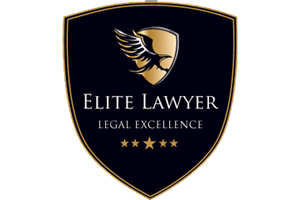- Free Consultation: (213) 251-5533 Tap Here to Call Us
California Law Prohibits Workplace Discrimination & Harassment

The California Department of Fair Employment and Housing (DFEH) enforces laws that protect you from illegal discrimination and harassment in employment based on your actual or perceived:
- ANCESTRY
- AGE (40 and above)
- COLOR
- DISABILITY (physical, mental, HIV and AIDS)
- GENETIC INFORMATION
- GENDER IDENTITY, GENDER EXPRESSION
- MARITAL STATUS
- MEDICAL CONDITION (genetic characteristics, cancer or a record or history of cancer)
- MILITARY OR VETERAN STATUS
- NATIONAL ORIGIN (includes language use and possession of a driver’s license issued to persons unable to prove their presence in the United States is authorized under federal law)
- RACE (including, but not limited to, hair texture and protective hairstyles. Protective hairstyles includes, but is not limited to, such hairstyles as braids, locks, and twists)
- RELIGION (includes religious dress and grooming practices,)
- SEX/GENDER (includes pregnancy, childbirth, breastfeeding and/or related medical conditions)
- SEXUAL ORIENTATION
THE CALIFORNIA FAIR EMPLOYMENT AND HOUSING ACT (GOVERNMENT CODE SECTIONS 12900 THROUGH 12996) AND ITS IMPLEMENTING REGULATIONS (CALIFORNIA CODE OF REGULATIONS, TITLE 2, SECTIONS 11000 THROUGH 11141):
- Prohibit harassment of employees, applicants, unpaid interns, volunteers, and independent contractors by any persons and require employers to take all reasonable steps to prevent harassment. This includes a prohibition against sexual harassment, gender harassment, harassment based on pregnancy, childbirth, breastfeeding and/or related medical conditions, as well as harassment based on all other characteristics listed above.
- Require that all employers provide information to each of their employees on the nature, illegality, and legal remedies that apply to sexual harassment. Employers may either develop their own publications, which must meet standards set forth in California Government Code section 12950, or use material from DFEH.
- Require employers with 5 or more employees and all public entities to provide training for all employees regarding the prevention of sexual harassment, including harassment based on gender identity, gender expression, and sexual orientation.
- Prohibit employers from limiting or prohibiting the use of any language in any workplace unless justified by business necessity. The employer must notify employees of the language restriction and consequences for violation. Also prohibit employers from discriminating against an applicant or employee because they possess a driver’s license issued to a person who is unable to prove that their presence in the United States is authorized under federal law.
- Require employers to reasonably accommodate an employee, unpaid intern, or job applicant’s religious beliefs and practices, including the wearing or carrying of religious clothing, jewelry or artifacts, and hair styles, facial hair, or body hair, which are part of an individual’s observance of their religious beliefs.
- Require employers to reasonably accommodate employees or job applicants with disabilities to enable them to perform the essential functions of a job.
- Permit job applicants, unpaid interns, volunteers, and employees to file complaints with DFEH against an employer, employment agency, or labor union that fails to grant equal employment as required by law.
- Prohibit discrimination on a protected basis against any job applicant, unpaid intern, or employee in hiring, promotions, assignments, termination, or any term, condition, or privilege of employment.
- Require employers, employment agencies, and unions to preserve applications, personnel records, and employment referral records for a minimum of four years.
- Require employers to provide leaves of up to four months to employees disabled because of pregnancy, childbirth, or a related medical condition.
- Require an employer to provide reasonable accommodations requested by an employee, on the advice of their health care provider, related to their pregnancy, childbirth, or a related medical condition.
- Require employers of 5 or more persons to allow eligible employees to take up to 12 weeks leave in a 12-month period: to care for their own serious health condition; to care for a child of any age*, spouse, domestic partner, parent**, grandparent, grandchild, or sibling with a serious health condition; to bond with a new child (by birth, adoption, or foster placement); or for certain military exigencies.
- Require employment agencies to serve all applicants equally, refuse discriminatory job orders, and prohibit employers and employment agencies from making discriminatory pre-hiring inquiries or publishing help-wanted advertisements that express a discriminatory hiring preference.
- Prohibit unions from discriminating in member admissions or dispatching members to jobs.
- Prohibit retaliation against a person who opposes, reports, or assists another person to oppose unlawful discrimination.
The law provides for remedies for individuals who experience prohibited discrimination, harassment, or retaliation in the workplace. These remedies include hiring, front pay, back pay, promotion, reinstatement, cease-and-desist orders, expert witness fees, reasonable attorney’s fees and costs, punitive damages, and emotional distress damages. Job applicants, unpaid interns, and employees: If you believe you have experienced discrimination, harassment, or retaliation you may file a complaint with DFEH. Independent contractors and volunteers: If you believe you have been harassed, you may file a complaint with DFEH. Complaints must be filed within three years of the last act of discrimination/harassment/retaliation. For victims who are under the age of eighteen, not later than three years after the last act of discrimination/harassment/retaliation or one year after the victim’s eighteenth birthday, whichever is later.
Please note that the information provided on this website is for general information purposes only and is not to be construed nor relied upon as legal advice nor the formation of an attorney-client relationship. For a free consultation with Attorney Thomas M. Lee, please contact us.








